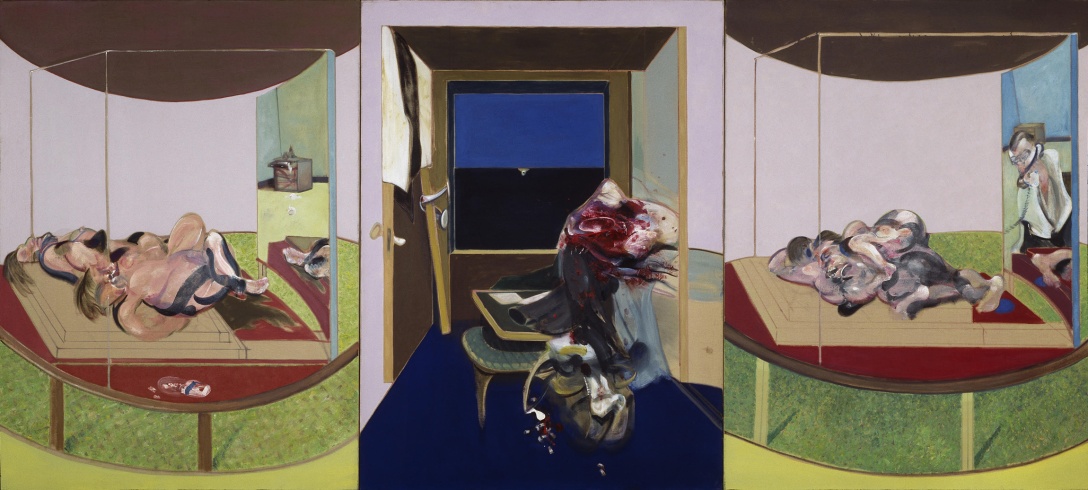Over the last few months, Boston has experienced a steady, gloomy drizzle on weekends, a weather pattern that allowed for indoor relaxation. Keeping with my unfortunate Twitter (X) habit, I checked my feed many times, noting the trending memes, politics and culture, as I’m sure millions others have– a skewed window into a simulacra. Recent events have offered a stark look at the state of the internet, a collection of unvetted influencers advertising different aesthetic combinations, text and images streaming in a continuous flow which no one knows how to critique. The algorithms and feeds quantify content, a post-hipster leveling which has reduced cultural commentary to PR when it used to be fun, at least. It’s another season of entrenchment in self-serving poptimism and hypocrisy, another strike against humanity.
Internet culture has been harmful to American life. Cycle after cycle, the evidence pours in: a geyser of content with confusing moral or logical perspectives, backed by fraudulent business schema that prop up inflationary wages, employment numbers and metrics to control the impression of demand. It’s rare to encounter anything online that feels “solid” or self-affirming, as digital content has become even more ephemeral, the novelty of internet irony absorbed into the mainstream. A masterstroke of dominant ideology is to excuse untenable consumptive habits: selfie narcissism, vapid slacktivism, radicalism disconnected from reality. Political discourse is wielded by the professional managerial class, knowing that true leftism will never take place within these conditions. On top of a deluge of amateur political punditry, the arts are merely content as well: screenshots of films, film factoids, and Hollywood news come at us in a never-ending blast, as if watching movies is an assignment you’re always behind on. You haven’t seen Diabolique? You didn’t go to the theater to see The Boogeyman (because it’s the only way to enjoy it fully)? The joy of discovery has been snatched away because “content” is leaden, a reminder of limited time and overly-monitored productivity, a constant need to generate FOMO.
The information exchange is a fast-flickering slideshow simulating movement. New content appeals to a readership of coastal dwellers in bungalows and well-appointed apartments, exorbitant rent cementing the foundation of exclusive ivory tower access. In The New York Times, daily articles about health and nutrition accuse the reader of living incorrectly, employing the generic term “wellness” alongside a fluctuating spout of standards, scientific evidence and trends, obsessed with the minutiae of private habits, preying on muddled attention spans. Corporeal existence and unmediated pleasure still offer hope, as our personal choices and idiosyncrasies resist complete domination by market ideology, but the need to float down the river of performative culture is too tempting for most people now– it’s also the easiest option. The visual medium of Youtube, TikTok and Instagram encourage two-dimensional spectatorship that turns life into a consumer product. Working alongside the self-perpetuation of social media networks, journalists mine the internet for low-hanging content, everything a source of hierarchical gossip or status symbolizing– which celebrities went to a particular fashion show, what TikTok trend might be “best for you”, or the best Bellini in Milwaukee, who’s the “it girl”, etc.
Humans do not need such an avalanche of data and information. The term “neo-Luddite” describes anti-technological thinking, and while used as a pejorative, the movement deserves more attention. In The Culture Industry, Theodor Adorno lays out the contradictions of liberals propping up mass entertainment in the spirit of democracy (with parallels to the current obsession with Taylor Swift, Harry Potter and Disneyland, though he was targeting jazz): “if regressive hearing is progressive as opposed to the ‘individualistic’ sort, it is only in the dialectical sense that it is better fitted to the advancing brutality than the latter”. Rolling Stone and Pitchfork used the pandemic to retcon music history, and bot-filled platforms are busy turning aesthetic taste into reductive memes. Adorno’s worst fears have become realized and the ability for the monoculture to coerce consensus has become unstoppable. The closing of mainstream discourse to formal radicalism, opting instead to exalt emotionally-driven superficiality mediated by an expensive latticework of screens and trillion-dollar platforms, is an obvious dead-end- when value is entirely subjective, nothing has value.
The willing compliance with “the way things are” as prescribed by appointed influencers, both in the academic and cultural spheres, has created an unstable zeitgeist that perpetuates violence, anger, depression and confusion. A society obsessed with one-upmanship, hacking at the legs of opposing viewpoints, stereotyping the endless array of “others” as if there is some hermeneutic that a particular clique has been given access to is absurd. An obsession with status, victimology, and conformity masked as piercing insight are as much a reproduction of “oppression” as the abstractions like patriarchy and racism that are blamed. In a country with such deep-seated egotism, it appears near impossible to operate outside of those invisible boundaries to exercise the potential for sociopolitical advancement. Politicians are advertisements in futility.
With year-end lists coming due, I look back on 2023 as being a bleak year for aesthetic development and/or signs of a healthy world: an overemphasis on authorship,and lack of attention to the material seems to be a trend across cinema, literature and music. There is too much fear of confronting the real issues, i.e. despair, loneliness and social strife, instead encouraging everyone to segment and orient themselves as an in-group against an artificial boundary separating them from an out-group. The result has been clumsy artists making art for predetermined audiences and commercial demographics, failing to approach the sublime or universal and thinking only in terms of self-serving reflexivity. Institutionally-backed artists are careful not to denigrate their colleagues, which means that criticism is softened to the point of irrelevance within the world of mainstream entertainment and art. Perhaps we need to bring back more potent negativity to achieve a positive result, otherwise we’re headed, much like actual reality, down a polluted river to be drowned at sea.
